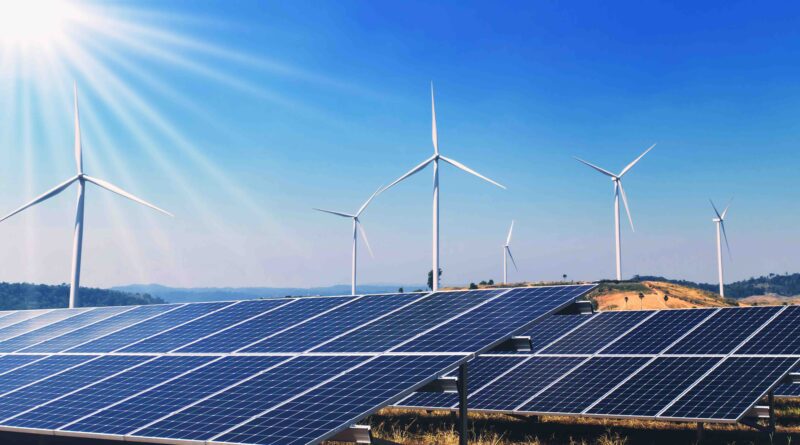Biden-Harris Administration Announces $3.5 Billion for America’s Electric Grid
Investing in America agenda, a key pillar of Bidenomics, will be allocating $3.46 billion for 58 projects across 44 states to strengthen electric grid resilience and reliability across America. All are funded by the President’s Bipartisan Infrastructure Law.
According to The Department of Energy, the Grid Resilience and Innovation Partnerships (GRIP) Program, managed by DOE’s Grid Deployment Office (GDO), funds activities to modernize the electric grid to reduce impacts of natural disasters and extreme weather worsened by climate change; increase the flexibility, efficiency, and reliability of the electric power system with a particular focus on unlocking more solar, wind, and other clean energy and reducing faults that may lead to wildfires; and improve reliability by deploying innovative approaches to electricity transmission, storage, and distribution. Today’s announcements of up to $3.46 billion represent a first round of selections under the broader $10.5 billion GRIP Program, which itself is one of several tools from President Biden’s Investing in America agenda that DOE is using to strengthen, diversify, and expand America’s power grid while creating good-paying union jobs and building community climate resilience. All of today’s selected projects have Justice40 commitments, and 86 percent either contain labor union partnerships or will involve collective bargaining agreements.
The projects selected are helping maintain and create good-paying union jobs, with more than three-quarters of the projects selected having partnerships with the IBEW.
The selections announced today for award negotiations under the GRIP Program include projects in the following states:
- Georgia – The Georgia Environmental Finance Authority and the Family of Companies that supports the Georgia electric cooperatives will collaborate on a transformative project to benefit communities across the state through increased reliability and lower costs with an estimated investment of more than $507 million. The project will make a comprehensive smart grid infrastructure update, through investments in battery storage, local microgrids, and grid reliability, as well as new transmission lines. With a focus on remote, hard-to-reach, and historically underinvested communities, the project will improve service reliability, decrease the frequency and duration of power outages, reduce energy bill strain on low-income households, and create more than 140 construction jobs.
- Louisiana – Two projects will focus on better positioning disadvantaged communities to withstand extreme weather. The state of Louisiana will launch a strategic initiative with 15 government entities, energy companies, and community and academic institutions to enhance statewide emergency response operations by deploying a network of Community Resilience Hubs powered by distributed energy resources microgrids. These microgrids can stand alone or integrate with utility-owned electric grid infrastructure and back-up generation assets. Under a separate project, Entergy New Orleans will enhance the local grid’s resilience to severe weather, including hardening existing transmission lines and distribution systems to reduce outage frequency and duration. It will also deploy a battery backup project that will reduce energy bills for disadvantaged communities.
- Michigan – In Detroit and its surrounding service territory, DTE Energy. will deploy adaptive networked microgrids, which have the capability to adapt to changing energy demands and supply conditions in real-time, especially after extreme weather events. The microgrids will rely on new grid sensing and fault location devices and communication tools that will enhance reliability and reduce the number and total duration of outages in the microgrid areas. Consumers Energy (CE) will build out much-needed infrastructure investments in some of Michigan’s most historically underinvested communities. The project will work to upgrade the backbone of CE’s circuit systems and increase capacity at local substations to better support redundancy and reliability in disadvantaged communities.
- Pennsylvania – In southeastern Pennsylvania, PECO Energy Company will increase grid reliability and resilience through substation flood mitigation, upgrading underground monitoring and control technologies, deploying battery systems for backup power, replacing aging infrastructure, and installing advanced conductors to increase grid capacity. In eastern Pennsylvania, PPL Electric Utilities Corporation will integrate distributed energy resources and enable real-time grid control to reduce outage duration and frequency, create more than 200 new jobs, and boost electric service reliability for more than 800,000 people. In Pittsburgh, Duquesne Light Company will enhance system capacity to unlock clean energy generation and meet targets established in the State’s Climate Action Plan while also mitigating customer cost increases, growing high-quality job opportunities and training, and boosting equitable access to clean energy.
- Oregon – Multiple projects across Oregon will connect vast amounts of clean energy to customers and create good-paying union jobs. The Confederated Tribes of Warm Springs Reservation of Oregon and Portland General Electric (PGE) will upgrade transmission capacity and connect PGE customers with the currently isolated renewable resources east of the Cascade Mountains, including those on the Warm Springs Reservation—building a bridge to up to 1,800 MW of carbon-free solar resources. PGE will also deploy an artificial intelligence-enabled, grid-edge computing platform to improve the connection of distributed energy resources, such as solar, as well as informed modeling that can predict pre-outage conditions and assist real-time decisions. PacifiCorp will update infrastructure for fire resistance and prevention in Oregon and neighboring states, reducing outages and risks, while also improving flood resilience and creating hundreds of training and employment opportunities in partnership with the International Brotherhood of Electrical Workers (IBEW).


